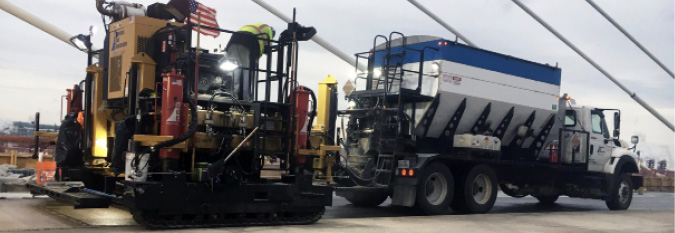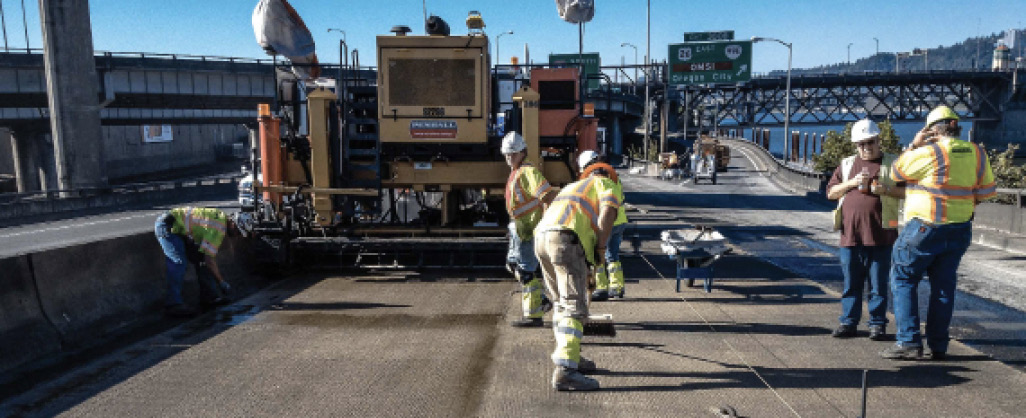
The parent company of New Jersey-based Sika Corp. has acquired Kwik Bond Polymers LLC (KBP), a developer of premium compounds for bridge deck and other heavy/civil concrete conditions. The Benecia, Calif. firm’s primary deck, overlay and surface treatment offerings for new construction or retrofit are polyester-based concrete or polymer-based basalt fiber synthetic mixes and high molecular weight methacrylate sealers. KBP’s 30-plus-year record of delivering long service life solutions is reflected on signature structures across the U.S., from the Interstate 278 Goethals Bridge linking New Jersey and Staten Island, N.Y. to the Interstate 80 San Francisco-Oakland Bay Bridge. The transaction includes California and Pennsylvania production facilities, both integrating into the Sika Corp. supply chain and service channels.
“Kwik Bond is a perfect complement to our current infrastructure focus and product portfolio,” says Sika AG Regional Manager, Americas Mike Campion. “Their well-recognized expertise in the U.S. and impressive track record of long-lasting projects fits our culture perfectly. By preserving and extending the service-life of concrete infrastructure, we deliver customer value and significant sustainability benefits to the construction industry.”

CODE-LEVEL INSULATION TURNS LEAN
Sika’s Rmax division has launched a namesake polyiso product, Below Grade, providing insulation and protection in foundation conditions while meeting energy code requirements. Renowned for its high thermal resistance, polyiso insulation is a popular choice for exterior continuous wall and roofing applications, enhancing the energy efficiency of buildings by effectively insulating against heat transfer. Rmax has tailored polyiso for below-grade applications by incorporating a durable, water-resistant facer onto a closed-cell foam core.“Historically, the vast majority of the below-grade commercial and residential foundations required a 2-inch thick XPS board to meet an R-10 code requirement in most markets, and 3 inches of XPS for R-15 in the northernmost markets,” says Sika Senior Vice President Martin Heiskell. “Our new product will meet the same R-10 requirement with only 1.5 inches of polyiso, which is 25 percent less material and achieves the same standard.” The material requirement reduction equates to fewer truckloads and less square foot of inventory space as measure against other below-grade board insulation options, he adds. — Sika Corp., Lyndhurst, N.J., www.rmax.com